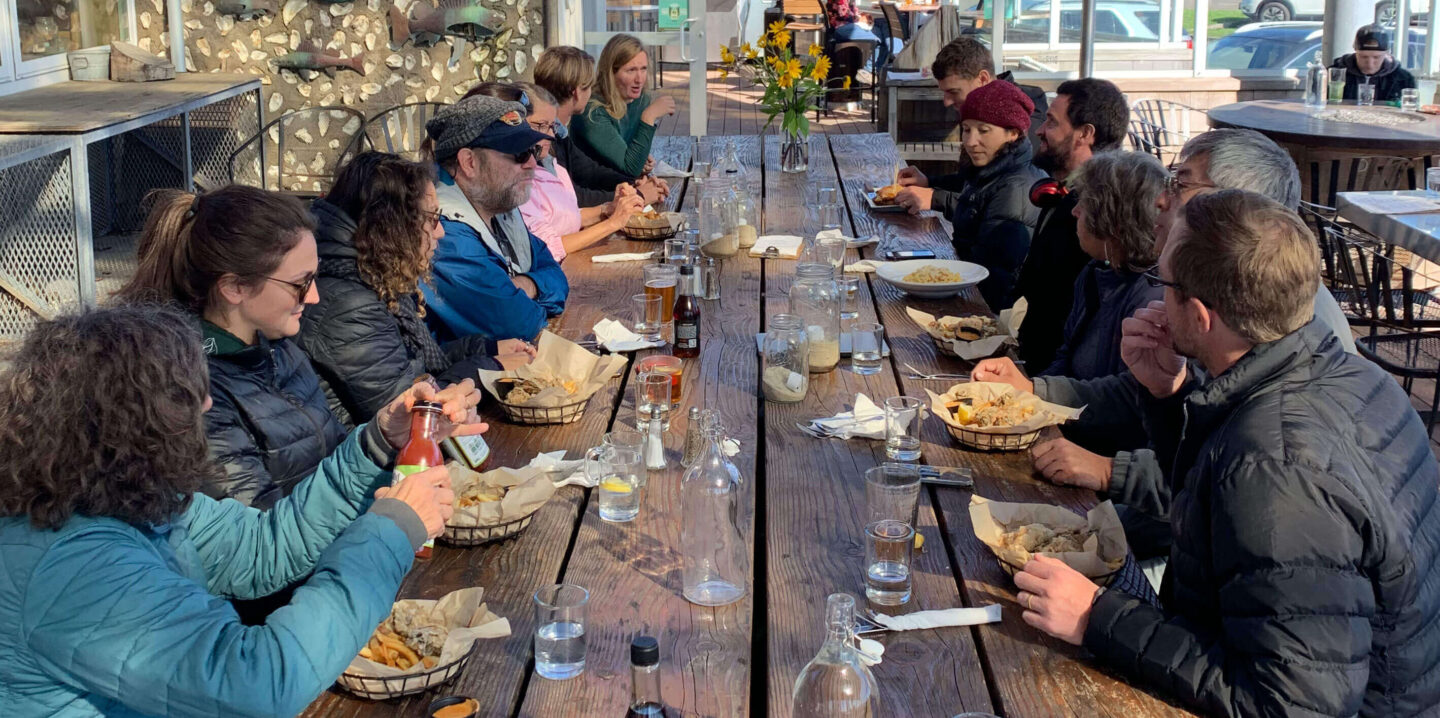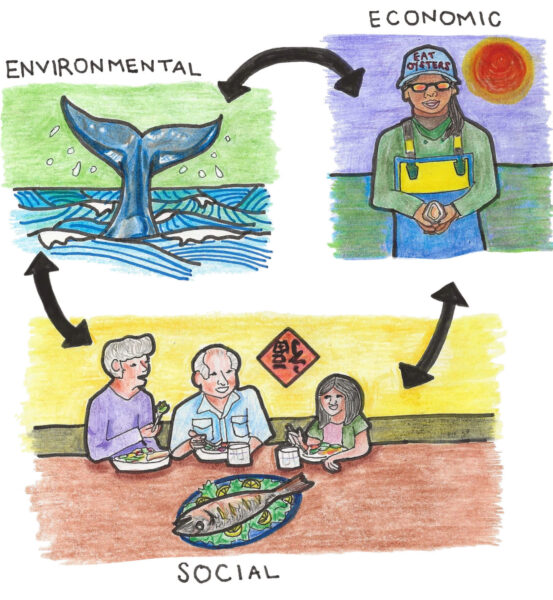Ensuring Food Justice
Our seafood system is broken – or rather it’s working splendidly for those exploiting it. But most of the rest of us who catch, harvest, produce and eat seafood bear the burden of this exploitation. NAMA’s end game is a just seafood system that guarantees fair wages and working conditions, equitable access to seafood, and healthy marine ecosystems.
Share this Post
The Problem
Today, our seafood system is repeating the epic mistakes of our land-food system, with policies that benefit large corporations and harm everyone else. We see this damage on multiple levels. Equity firms and global corporations have snatched the majority of fishing rights from local fishermen. Massive industrial fish farms pollute coastal ecosystems and harm wild fish. Workers throughout the supply chain suffer human rights abuses. Marginalized groups, including Black and Indigenous people (BIPOC) and low-income white communities, lack access to healthy, culturally appropriate seafood. And many BIPOC fishing communities face persistent exclusion and sabotage.
With fishing rights increasingly dominated by corporations and private equity firms, more than 18,000 people have lost their jobs – a huge blow to local economies. The small- and mid-scale fishermen that remain are barely making ends meet, forced to accept unfair prices for their catch. Others spend their already slim profits paying their sea lords for the right to fish.
Our seafood supply chain is also teeming with rights abuses, such as human trafficking, slavery, dangerous working conditions, and wage theft. In the United States, many seafood processing plants violate basic labor laws. Bosses steal wages, don’t pay overtime, and force workers to work in dangerous conditions. Workers are not provided with adequate training or breaks.
Lack of access to healthy, culturally appropriate seafood is another problem. For instance, genetically engineered salmon bypasses the rights of several indigenous peoples who identify as Salmon People. Other people simply cannot afford the often inflated cost of seafood, so access is limited to those with the means to buy it, which frequently excludes communities of color and working-class people.
Racism is also widespread in our seafood system and fisheries. Even today, Black fishermen face sabotage, like when fuel stations bar them from buying fuel. This story of undermining mirrors that of Indigenous fishing communities. For instance, in Nova Scotia, the Mi’kmaq Tribe has experienced violence and had their lobster catches destroyed by white fishermen.
The Solution

Ensuring food justice embodies all of NAMA’s core values and is connected to every piece of our work. Building a just seafood system means tackling its interrelated injustices – economic, social, racial, and environmental. It also means making sure seafood has a seat at the food justice discussion table.
We envision a system in which fish workers are paid a fair price, regional seafood markets adapt to the ocean’s health, everyone can access good, as-local-as-possible seafood, and the people who catch and eat seafood are at the center of decision-making.

This means transforming the system to benefit values-based seafood operations, ensuring access to affordable, healthy, culturally appropriate marine-based foods, and securing a thriving economic future for coastal fishing communities.
We do this by:
- Working with traditional and non-traditional allies, shifting markets and policies, and making sure seafood is included at the food justice discussions.
- Partnering with high profile allies such as Farm Aid to elevate the importance of seafood as part of our food system for the general public.
- Elevating worker justice and fish workers in conversations about just food systems and seafood supply chains by collaborating with groups like Migrant Justice.
- Ensuring locally caught seafood is sold at farmers' markets in a way that guarantees access to low-income communities in collaboration with entities like the City of Boston to change local ordinances.
- Fostering meaningful connections to ensure BIPOC fishermen feel empowered to tell their stories at our in-person and online network events and meetings.
- Reaching communities with barriers to accessing fresh local seafood through partnerships and collaborations, such as with Food Solutions New England, Farm Fresh Rhode Island, and African Alliance of Rhode Island.
- Fighting seafood and fisheries policies and laws that benefit private firms and corporations through coalition campaigns like Block Corporate Salmon and Don’t Cage Our Oceans.
- Advancing boat-to-institution programs through our work with many organizations and alliances, especially Health Care Without Harm, to design efforts such as Anchors in Action.
